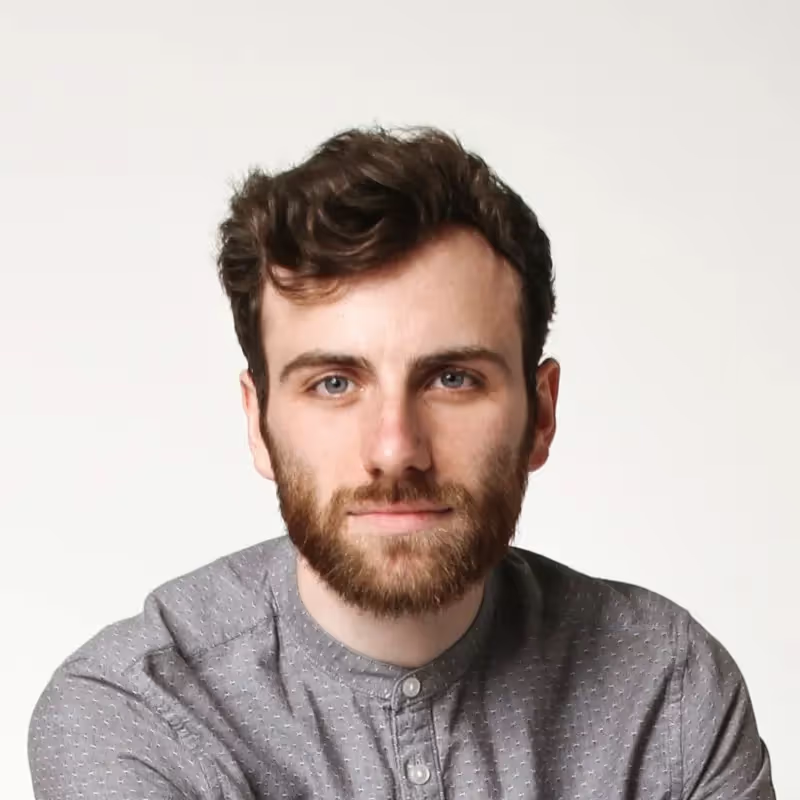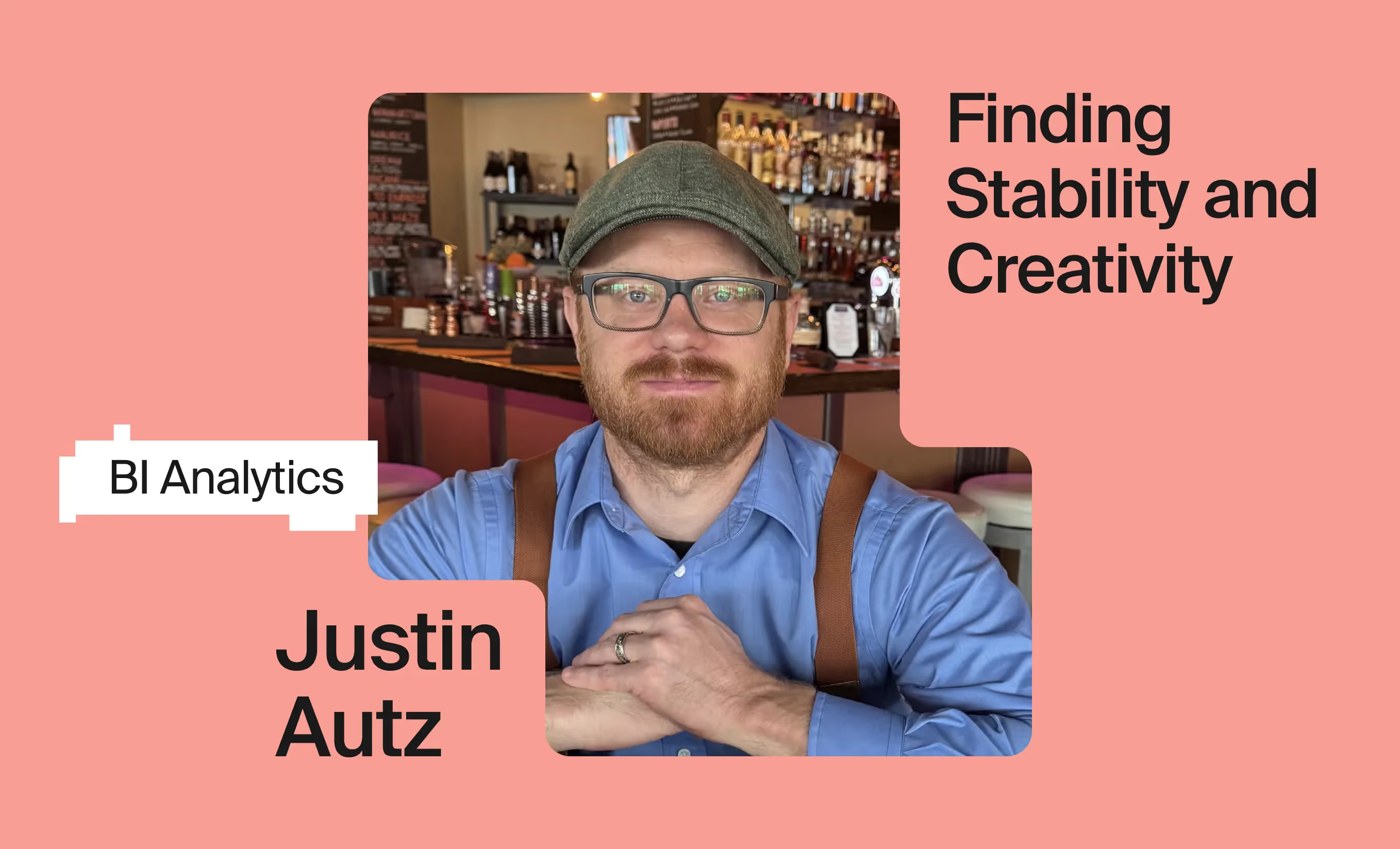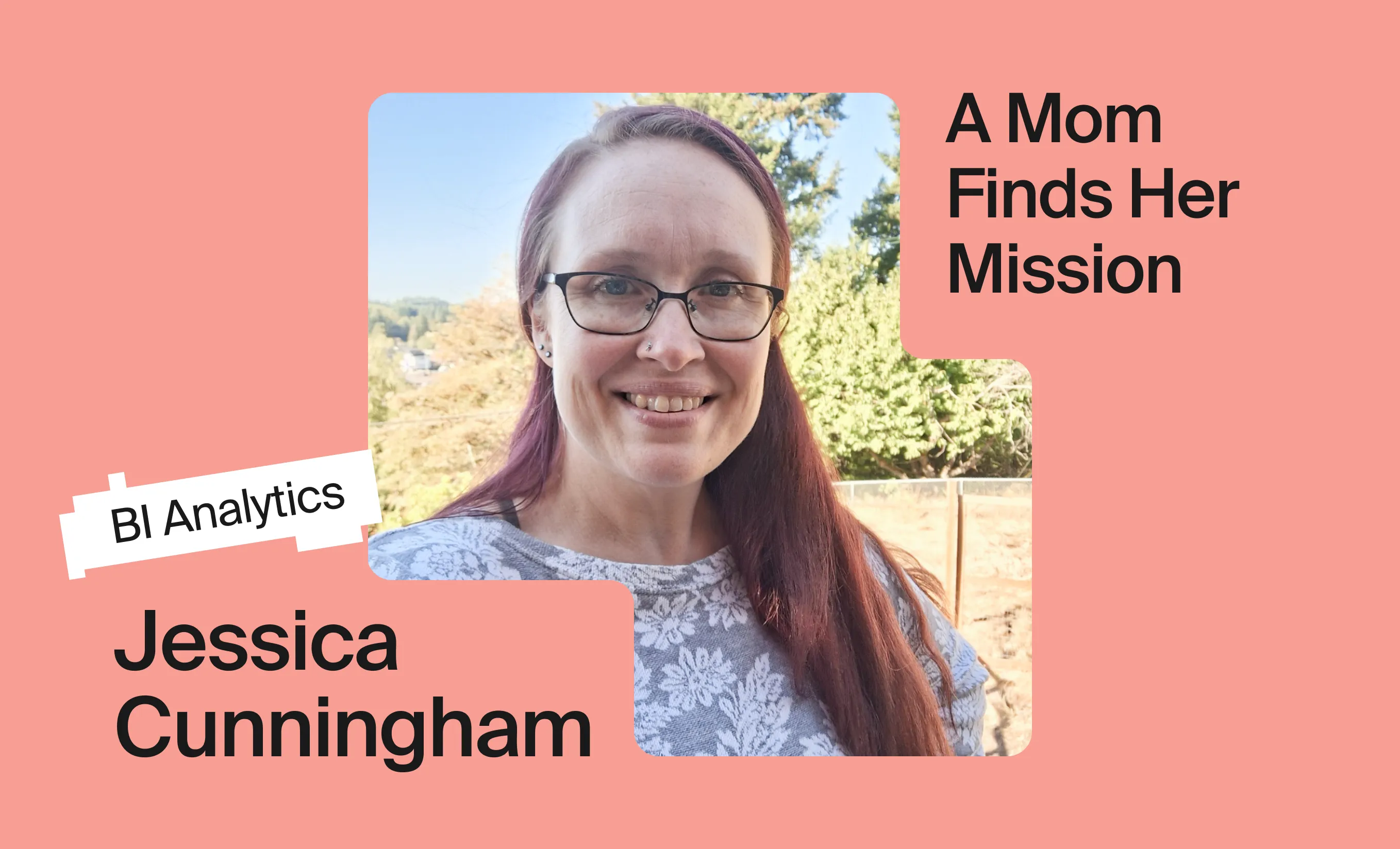In a career, volatility can self-perpetuate. You might find yourself in one position for a year, switch to a new one that you spend only a few months in, and then land another role that lasts just a few seasons. And for some industries, this is simply how things are done. But there’s a clear downside to this: a sense of unpredictability and precarity.
That’s not the only catch, either. If you want to make a change to find some professional stability, your inevitably spotty resume might hold you back. It’s a vicious cycle. You want to escape from the volatility, but the volatility itself is preventing you from making that very transformation.
So sometimes, as Michael Reasoner knows, it takes a big move to interrupt that sinister logic. He broke out of that cycle, and you can, too. Here’s how he did it.
Job hopping
Michael enrolled in college for digital art, but it was clear from early on that this wasn’t the path for him. “I got through my first year of college and was like, ‘Nope, this isn't for me,’” he said. Still, he finished his degree, and upon graduation, he decided to instead go for what really moved him: cycling. He worked as a mechanic, a technician, and a sales rep. In every position, his enthusiasm for the hobby carried him through. Until it didn’t.
“Cycling was my passion,” he said. “And then it became a job, and it just wasn't for me anymore.” Not only did turning his joy into a paycheck tarnish it, though. There wasn’t much reliability in the cycling industry either, and he found himself more and more interested in something stable. “That's something that I didn't have in the cycling industry. It's very volatile,” he said. “Every season you might go to a new bike shop within the same city.”
And over time, he liked this setup less and less. He himself admitted, “I've become just a different person, so what I wanted during college is not what I want now.” But what should he go for? His mom had a suggestion: “My mom was actually a business analyst, and at one point in time she had said, ‘Michael you'd be great as a QA person.’”
He filed that idea for later because he still needed to pay his bills. So, out of pure practicality, he took a job in logistics. It was so far from ideal that it got him to really take his mother’s advice seriously. “After about six months of that [job], that's when I was like, ‘Yep. Enough. I need to make a change,” he said.
He tried to make inroads to tech, but found himself stymied. That got him to look for something that would both give him a roadmap into the industry and fuel his growth. A bootcamp seemed ideal. That’s when he came across TripleTen. It was precisely what he was looking for.
When I saw a six-month bootcamp — you get your money back if you don't get a job, you pay this, you should have a job at the end of it. Cool. That's what I needed. That was the direct path that I could see. Michael Reasoner, TripleTen grad
Convinced, he enrolled.
Spinning up new job skills
Michael dove into the bootcamp full-force. “I did not pace myself when I first started, and boy did I get burnout,” he said. “I was just plowing through everything like, ‘I'm going to get this done in three months!’”
So he learned to slow down, and this was crucial because there was a lot of material for him to master: “It was a massive amount of work, but that's a good thing, I think. The amount that they cram into the sprints and the course — it's a lot of information.”
Not only did he learn to approach the bootcamp sustainably — something especially valuable since he was still working his logistics job — but he also made sure to take full advantage of the support systems offered. This was crucial when he encountered automation, a subject he needed a bit more help on. “I reached out [to a tutor] at one point during the automation sprint, and that was probably one of the most challenging sprints that I went through, but it was also one of the most rewarding,” he said.
He looks back on this and sees how important being able to bounce ideas off an industry-seasoned expert was: “Having someone there that I can work one-on-one with was very, very nice.”
With automation handled, he was ready to seize a unique opportunity: an externship, a hands-on tech project with a real-life company. In his case, he and his group of fellow students took on API testing for Supernova, a startup insurance company.
Looking back, Michael sees just how indispensable the externship has been.
All of my jobs had been in a warehouse or in a bike shop or in a van down by the river. I'd never worked in a professional setting where you're at a desk for eight hours. So actually experiencing that, having those daily standups, working with your co-workers…just gaining that experience before actually moving into a job I think was one of the most valuable things for me specifically because I didn't have any of that experience beforehand. Michael Reasoner, TripleTen grad
And yes, he did say “moving into a job” — all his hard work did end up paying off.
Shifting into the career for him
Now, it wasn’t instant. In fact, Michael was already in discussion with the TripleTen team about activating the money-back guarantee when he landed the job. It came in just in time; he got the offer letter the day before the guarantee’s deadline.
How did he land it? Hard work and a clear strategy. He felt that his credentials, while robust enough to get him started, wouldn’t compare to those of other QA specialists who’d been in the field for decades. Assuming the more seasoned professionals were prioritizing remote jobs, he decided to go another way: focusing on local companies that weren’t fully remote. That led him to Northwoods, which makes software for social workers. He applied, and they invited him to come in for an interview.
It was a multi-stage process that went from a screening call to an unexpected conversation with the director of product delivery and finally ended with an in-person QA assessment during which the interviewers provided him with a website, gave him some testing criteria, and told him to have at it.
For the next hour and a half, I walked them through how I would test this website. And they were impressed. Two hours after that interview I was offered the job. Michael Reasoner, TripleTen grad
For Michael, it’s a major shift from where he used to be, and it’s almost unfair to compare it to his previous career. The company knows it’s working with real people, and emphasizes the human side of work: “There's actual teamwork. There's actual camaraderie. If you have a doctor's appointment, they're not going to ask you, ‘Can you move it?’”
Not only that, but among his new community, he’s building to a thriving professional life in a field less beset by volatility. “Getting all of that experience with people that are right next to you is incredibly valuable,” he said.
But the most significant change came outside of work. “It's truly changed my life. Not to be sappy, but getting a QA job, moving into tech, getting away from my old career and job has truly been life-changing — mentally, physically, all of the above.”

Want to follow his lead?


.avif)
.avif)












